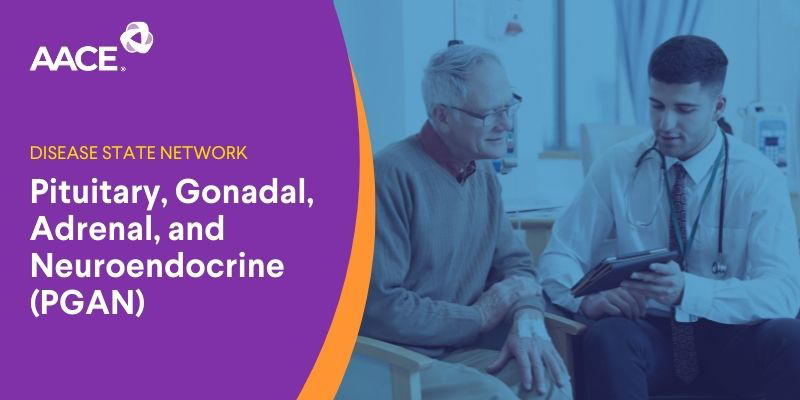
- Log in to post comments
Patients with Adrenal Insufficiency (both Primary Adrenal Insufficiency [PAI] and Secondary Adrenal Insufficiency [SAI]) have a higher morbidity and mortality rate than healthy controls primarily due to infection.1,2 Patients with PAI and SAI are at an increased risk for infection due to altered innate cellular immunity which is characterized by a significant reduction in natural killer (NK) cytotoxic cells.3,4 These NK cells play a critical role in defending organisms against viral disease. Thus, we must assume patients with AI are at high risk for acquiring the novel corona virus SARS-CoV-2 responsible for causing the illness COVID-19. Patients with PAI and SAI who acquire an infection are at high risk for complications particularly a life-threatening adrenal crisis. Therefore, we have a great duty to educate our patients with AI regarding the prevention of acquiring SARS-CoV-2. First and foremost, we should urge these patients to become fully vaccinated and boosted. Second, they should be encouraged to maintain stringent social distancing and masking practices as well as follow good sanitary hygiene rules. Thirdly, we should remind patients to be fully prepared in case they acquire the virus and to have immediate acting glucocorticoid on hand. They also should be wearing their medical alert identifier or at least have an emergency alert message on their smart phone or a wallet card to identify them as having Adrenal Insufficiency and to state the necessity for emergency stress dose intravenous hydrocortisone.
Though data is limited, there is currently no available evidence that demonstrates patients with adrenal insufficiency who acquire COVID-19 have a more severe clinical course. On the contrary, a recent retrospective case-control study evaluating the symptoms and complications in patients who acquired COVID-19 found that AI patients who were adequately treated and educated with regard to “sick day rules” displayed the same incidence of symptoms and disease severity as controls.5 This study from a tertiary care center in Milan, Italy followed clinical outcomes during the height of the pandemic (February 14, 2020 through April 30th 2020) in 279 patients with AI (219 with SAI and 60 with PAI). At the start of the pandemic, the study investigators educated these patients by reminding them of the importance of adhering to their glucocorticoid (GC) regimen, increasing their GC doses according to established sick day rules and following national sanitary rules in their workplace. The study investigators concluded that AI patients who are adequately educated on infection-related risks and trained properly on glucocorticoid replacement therapy self-adjustment do not appear to be more at risk of COVID-19 complications than controls.5
The results from this study are promising and highlight the importance of patient education and patient empowerment. Accordingly, we need to ensure that we adequately educate our patients with AI and their families/partners/caregivers regarding “sick day rules” to help them to prevent the morbidity and complications associated with COVID-19. A recent review in the European Journal of Endocrinology thoroughly addresses this topic.6 Patients displaying mild to moderate signs of COVID-19 (fever > 38° C /101° F, cough, fatigue and myalgias) should be in contact with their primary care physician/endocrinologist and promptly start immediate acting glucocorticoid – 20 mg of hydrocortisone every 6 hours until their fever subsides.7 Those who experience symptoms of clinical deterioration and/or onset of a suspected adrenal crisis(respiratory rate >24 breaths per minute, vomiting, profound lethargy and weakness) should immediately inject 100 mg of intramuscular hydrocortisone, call for medical assistance and for urgent transfer to their local Emergency Room. Upon arrival in the hospital, they should be promptly treated with parenteral hydrocortisone – 100 mg intravenously followed by 200 mg hydrocortisone/24 hours and receive intravenous fluid resuscitation. Once clinical improvement ensues, hydrocortisone should then be gradually tapered.
In conclusion, we have a great responsibility to educate, empower and urge our patients with Adrenal Insufficiency to be fully prepared to prevent infection as well as to manage their disease in the event of acquiring SARS-CoV-2 during the ongoing COVID-19 pandemic. The study by Carosi et al as well as the recent review by Arlt et al highlight these very important messages.
References:
- Bergthorsdottir R, Leonsson-Zachrisson M, Oden A, Johannsson G. Premature mortality in patients with Addison's disease: a population-based study. J Clin Endocrinol Metab 2006;91:4849-53.
- Burman P, Mattsson AF, Johannsson G, et al. Deaths among adult patients with hypopituitarism: hypocortisolism during acute stress, and de novo malignant brain tumors contribute to an increased mortality. J Clin Endocrinol Metab 2013;98:1466-75.
- Bancos I, Hazeldine J, Chortis V, et al. Primary adrenal insufficiency is associated with impaired natural killer cell function: a potential link to increased mortality. Eur J Endocrinol 2017;176:471-80.
- Isidori AM, Venneri MA, Graziadio C, et al. Effect of once-daily, modified-release hydrocortisone versus standard glucocorticoid therapy on metabolism and innate immunity in patients with adrenal insufficiency (DREAM): a single-blind, randomised controlled trial. Lancet Diabetes Endocrinol 2018;6:173-85.
- Carosi G, Morelli V, Del Sindaco G, et al. Adrenal Insufficiency at the Time of COVID-19: A Retrospective Study in Patients Referring to a Tertiary Center. J Clin Endocrinol Metab 2021;106:e1354-e61.
- Arlt W, Baldeweg SE, Pearce SHS, Simpson HL. ENDOCRINOLOGY IN THE TIME OF COVID-19: Management of adrenal insufficiency. Eur J Endocrinol 2020;183:G25-G32.
- Bornstein SR, Allolio B, Arlt W, et al. Diagnosis and Treatment of Primary Adrenal Insufficiency: An Endocrine Society Clinical Practice Guideline. J Clin Endocrinol Metab 2016;101:364-89.

Login to leave a comment and join the conversation